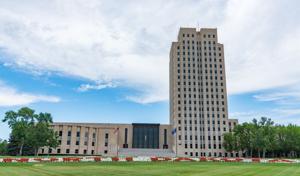Economist: North Dakota’s economic position is strong

(The Center Square) – North Dakota’s economic position is currently strong, pointing toward growth in wages, reduced unemployment and strong tax collections, while the national risk for recession remains.
Economists surveyed by the Wall Street Journal say the risk of recession in the next 12 months is at 28% due to supply shocks and rising inflation.
“Like most of the country, the current economic conditions (inflation, supply chain, low available labor) create some risks in the economy, and one of those risks is recession,” Dr. David Flynn, professor of economics and Clow Fellow at University of North Dakota, told The Center Square. “The current risk, while positive and real, is not necessarily as high as it has been in other situations, such as COVID or the decline in oil prices in the 2015-16 time period. The significant amount of commodity-based activities, such as oil and agriculture, would be potentially hard hit with the current global volatility. This would translate into the metropolitan areas but those areas may be better able to handle it given economic diversification.”
The North Dakota Forecast Model indicates that the state’s economy is tied to oil and can be affected by the price of crude. But in a worst-case crude price scenario, taxes are projected to remain flat rather than decrease. Currently, crude prices continue to increase. The price of wheat is expected to remain stable while corn and soy prices may rise.
A recession would most likely be precipitated by global volatility or supply chain problems, Flynn said. While global volatility would represent a significant negative impact to a keystone economic sector, supply chain issues can impact sectors both large and small and lead to significant adjustments without any clear resolution.
Flynn said if the state were to experience a recession, “there would be low economic growth but unlikely a long-term impact. We would likely see something like two quarters’ duration at most unless there would be broader economic crises in the U.S. as a whole. The state has a good budget position overall and has been prudent in recent years so there is some degree of fiscal flexibility available.”
Of business and industry, Flynn said they are more likely to deal with current economic conditions such as inflation, labor force shortages, and supply chain disruptions.
“Add to that global volatility in agriculture prices and some difficult weather at the start of the year and many economic sectors are dealing with the issues here and now,” Flynn said. “They are keeping an eye to the idea of a recession but need to deal with those other immediate issues right now.”
Disclaimer: This content is distributed by The Center Square

